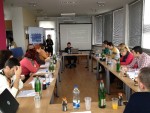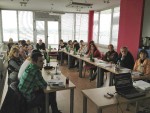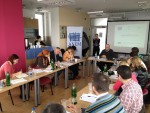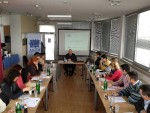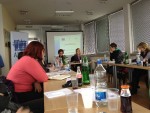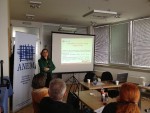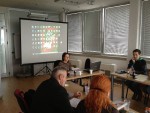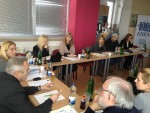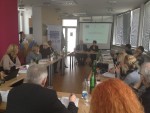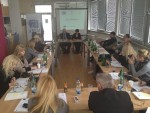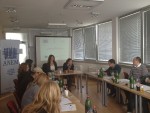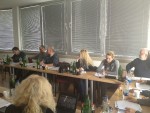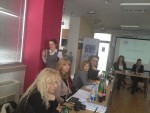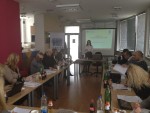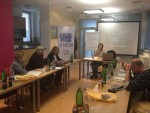28. 02. 2013
Seminar “Mechanisms for preventing corruption in Serbia”

The seminar was divided into several thematic sections. Nine trainers from the Agency, coming from different sectors of the institution, provided the participants with essential information about corruption and mechanisms for its prevention and combating it, main competencies of this independent state body, especially those related to conflict of interest, control of financing of political entities, register and control of officials, property and gifts. Lecturers also acquainted seminar participants with the complaints of citizens, protection of whistleblowers, as well as with the legal framework relevant for this field. In the focus of the lectures were also selected key terms related to corruption that will be covered in the radio and TV series, to be produced within the project.
During the introductory lecture, journalists were able to learn that there are several definitions of corruption, and that it is interpreted, in the broadest sense, as any abuse of office by a state employee or a person holding public office (official), with the aim of acquiring personal and/or financial benefit; that there are two levels of corruption - high (political) and lower, administrative level; about the causes and consequences of corruption and corrupt behavior; about the most common forms of corruption, with the particular emphasis on patronage (assigning positions or benefits to individuals regardless on the qualities - nepotism, with family members), bribery (the act of offering money, services or other value to receive benefits in return), fraud (theft of state property/public goods by public officials) etc; about perception of corruption, how it is measured and why it is important; about integrity (personal, institutional, and social), as a term contrary to the term 'corruption' and accordingly, accountability and transparency were discussed as prerequisites for effective, efficient and fair management in the public authorities.
Particular focus of the seminar was also put on the conflict of interest, defined by the Agency as a situation in which an official has a private interest that affects, may affect or may be perceived to affect actions of the official in discharge of public office or official duties in a manner that compromises public interest. Each of these situations was individually explained through examples. Participants learned who is called an official and who associated persons are considered to be, what a public office is and what the rules relating to the discharge of multiple functions or other jobs or activity are - for example, that there is legal prohibition on the discharge of any other public office, with few exceptions; that an official may not perform other jobs or engagements during his tenure in public office that requires full-time or permanent work contract to be signed, with few exceptions, nor may he/she establish a commercial company/public service/commence engagement in private occupation during tenure of public office; also, that an official is obliged to inform his/her superior and the Agency regarding any doubts concerning possible conflict of interest or the situation of conflict of interest he/she or an associated person may be in etc. The participants were informed in detail about the competences and practices of the Agency in this area in accordance with the Law on the Anti-Corruption Agency, such as giving opinions, directives and answers to questions regarding the application of regulations concerning the resolution of conflicts of interest; giving or denying consent in connection with official's request for discharge of other public function, job/activity; acting on complaints (submitted by citizens or ex officio) and pronouncing appropriate measures against officials for violation of provisions of the Agency's Law or other legislation containing provisions on preventing conflict of interest; filing misdemeanor charges.
In the part of the seminar dealing with the control of financing of political entities (political parties, coalitions, citizens' groups), journalists were given explanations to the solutions provided in the Law on the financing of political activities. Journalists learnt that there are two types of sources of financing of political entities - public, which is allocated, under equal conditions, to all political entities, and private (membership fee, contribution, inheritance, legacy, property income and bank loans); what the maximum value is that individuals and legal entities may donate to political entities on an annual basis; in which cases financing of political entities is banned; what the difference is between the financing of regular work of political entities and the financing of election campaign costs and, within that, the obligation of political entities to keep records (accounting and special records of contributions, gifts, property, etc.), to report to the Agency (by filing the annual financial statements and reports on the costs of the election campaign), open a separate account for election campaign; what electoral guarantee is, as the new legal obligation of political entities using public funds to finance election campaigns; the competences of the Agency in this area and its powers in the event of violation of the law (such as warnings, filing misdemeanor or criminal charges, a decision on the loss of the right to public funds for the following year, a decision on temporary suspension of the transfer of funds from public sources until the adoption of a final decision in a criminal or misdemeanor proceedings).
Also, in a separate segment of the seminar, journalists could hear about the records kept by the Agency and what they included - Registry of officials, Registry of property of officials, Catalogue of gifts, as well as search options of these records; reports that an official is required to submit to the Agency (regular reports on property and income of official and associated persons - within 30 days of election, appointment or nomination and within 30 days of termination of public office of the official concerned, as well as special reports, in case of significant changes in the reported data), and which officials are not required to file reports; gifts - an official must not accept gifts in connection with the discharge of public office, except protocol gift or other appropriate gift, but not even then if the gift is in money or securities; an official is obliged to report any gift received in connection with the discharge of public office and to hand it over to the competent authority, with few exceptions; even the associated person of an official must not receive gifts in connection with the discharge of public office of the official in question, with few exceptions; when the official is obliged to refuse the gifts; the body in which the official holds public office shall keep records of gifts and deliver it to the Agency. Participants also learned that the body in which the public official holds public office is required to report the official's taking of public office as well as termination of office; the official is required to transfer its management rights, but his/her management function cannot be transferred; the legal entity in which an official owns a stake/shares, is obliged to notify the Agency of the process of privatization and public procurement in which it participates; the Agency controls the data provided by officials in cooperation with other relevant institutions and bodies. In the event of violation of the Law concerning said obligations, the Agency files misdemeanor charges, except in one case when Agency files criminal charges - when official fails to report property to the Agency or gives false information about the property. Journalists have also learnt more about the integrity plans - that they include measures to prevent and eliminate possibilities for the emergence and development of corruption, which public authorities are required to adopt, as well as that the Agency monitors their adoption and implementation.
In the last lecture - the complaints of citizens and the protection of whistleblowers, journalists found out more about the complaints of citizens, who used them to point to the corruption cases or express their suspicion of corrupt activities; the complaints may be filed by both natural and legal persons, only in writing, by email or post, in the form of motion or exact form which could be found, together with the request form for protection of whistleblowers, on the website of the Agency; the Agency acts on the complaint, analyzes the case in question and requests additional information from other authorities, since the Agency does not have investigative powers; in these cases, other authorities are obliged to cooperate with the Agency. Also, journalists learned that the status of a whistleblower can be given to a person who is employed by a public authority and reports suspicions of corrupt behavior in the body where he/she works; besides the complaint, this person also submits a request for protection; the Agency protects whistleblowers from retaliation of responsible persons; the whistleblower cannot be fired for two years from obtaining the status of whistleblower; the Agency acts on complaints and whistleblower complaints relating to events starting from January 1, 2010, namely the date of the Law coming into force, and although it is not obliged to act on anonymous complaints, the Agency still does so, whenever possible.
In the opinion of journalists, the seminar was rated as very high in quality. They obtained new knowledge on corruption, its forms and mechanisms for preventing and combating it, that are applicable to their future research and reporting on issues of corruption, which was the aim of the seminar. Of particular importance to the journalists was interaction with lecturers, who provided them with specific answers to their questions, in addition to expert information and explanation.
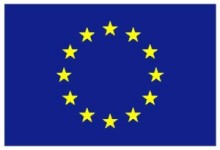
ANEM's Project "Illustrated Glossary of Corruption" is financed by the European Union within the Civil Society Facility Programme.
The contents of this text are the sole responsibility of ANEM and can in no way be taken to reflect the views and stands of the European Union.
-
Photo: ANEM, 27.02.2013
-
Photo: ANEM, 27.02.2013
-
Photo: ANEM, 27.02.2013
-
Photo: ANEM, 27.02.2013
-
Photo: ANEM, 27.02.2013
-
Photo: ANEM, 27.02.2013
-
Photo: ANEM, 27.02.2013
-
Photo: ANEM, 28.02.2013.
-
Photo: ANEM, 28.02.2013.
-
Photo: ANEM, 28.02.2013.
-
Photo: ANEM, 28.02.2013.
-
Photo: ANEM, 28.02.2013.
-
Photo: ANEM, 28.02.2013.
-
Photo: ANEM, 28.02.2013.
-
Photo: ANEM, 28.02.2013.
-
Photo: ANEM, 28.02.2013.
-
No comments on this topic.
